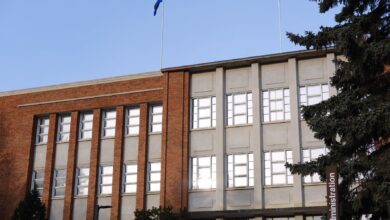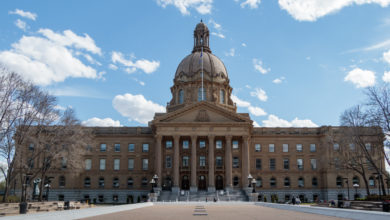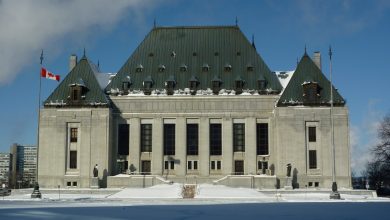Premier addresses cuts to post-secondary and equalization payments at state of province address
Jason Kenney said that a referendum around repealing equalization payments from the constitution could be triggered if certain conditions for Alberta aren't met
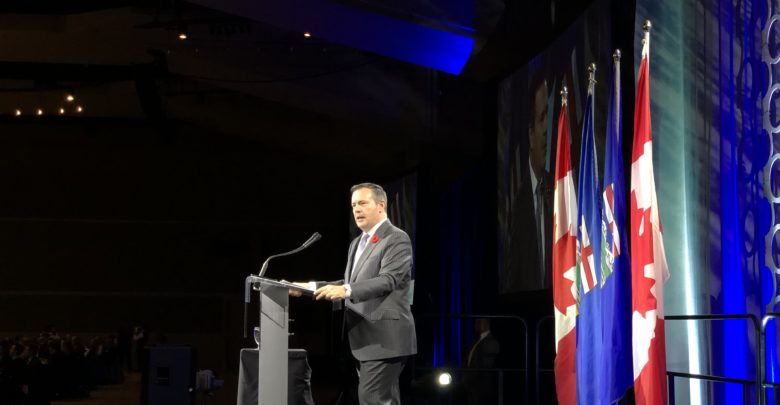 Adam Lachacz
Adam LachaczPremier Jason Kenney addressed several issues during his state of the province address, including recent cuts to post-secondary education outlined in Budget 2019 and concerns surrounding equalization payments.
The premier delivered his remarks at the Edmonton Chamber of Commerce State of the Province Address on October 29 at the Edmonton Expo Centre.
According to Kenney, the two largest concerns for the province include a federal government who is openly combative against Alberta, and the economic challenges facing Albertans.
“It was discouraging to hear in the recent election our prime minister target this province and its largest industry for criticism,” he said.
Kenney addresses cuts to post-secondary
During his address, the premier addressed concerns to cuts made to advanced education that the provincial government proposed under Budget 2019.
In terms of post-secondary education, Kenney said Alberta needs to balance its need for delivering world-class education while also ensuring taxpayer dollars are used effectively.
“We need to recognize that we spend $10,000 more per post-secondary student than the average amongst other big provinces [despite] lower enrolment rates and lower post-secondary completion rates,” he said.
He added that while the province will continue to invest in post-secondary, it will do so in a more targeted manner.
Kenney said the jewel of Edmonton’s technology crown is the University of Alberta and its research into artificial intelligence (AI).
“The jewel of your tech crown [in Edmonton] is the U of A’s artificial intelligence lab,” he said. “It ranked top three in the world.”
Further, he said the government would continue to support AI research in Edmonton and at the U of A. He offered no other specifics about this support.
Kenney ready to trigger referendum on equalization, if conditions not met
During his speech, Kenney said Alberta “must” either get a pipeline to tidewater or an adjustment to the equalization payment formula, otherwise he would trigger a referendum for Albertans to voice if they would want to eliminate equalization from the constitution.
In a press conference immediately following Kenney’s speech, the premier said the system of equalization is “unfair” to Alberta. While repealing equalization from the federal constitution would require the support of at least seven of Canada’s nine provinces, Kenney said a referendum would make clear to Ottawa that change is needed.
He added that a “simple” solution to the Alberta’s equalization problem would be for the federal government to lift the cap on the fiscal stabilization program. The program allows the national minister of finance to provide financial assistance to provinces facing multi-year declines in non-resource revenues.
For Kenney, the program — while not actually part of the equalization process — is supposed to act as a sort of reverse equalization for “have” provinces who undergo significant economic difficulties. He said that the program and its cap unequally target provinces that choose to develop their natural resources.
“The federal government could, even in the absence of agreement from other provinces on equalization, treat Alberta more fairly, recognizing our huge role and contribution to the rest of Canada and the fiscal adversity we are going through by lifting the cap,” he said.
According to Kenney, if this cap was lifted, Alberta would go from receiving $230 million under the fiscal stabilization program to over $1.3 billion.
“I will be offering that as an alternative,” he said. “At the end of the day, Albertans want us to fight hard for our vital economic interests of this province. That means we need to find some leverage. For me, the idea of a constitutional referendum on equalization is one way of exercising that leverage.”
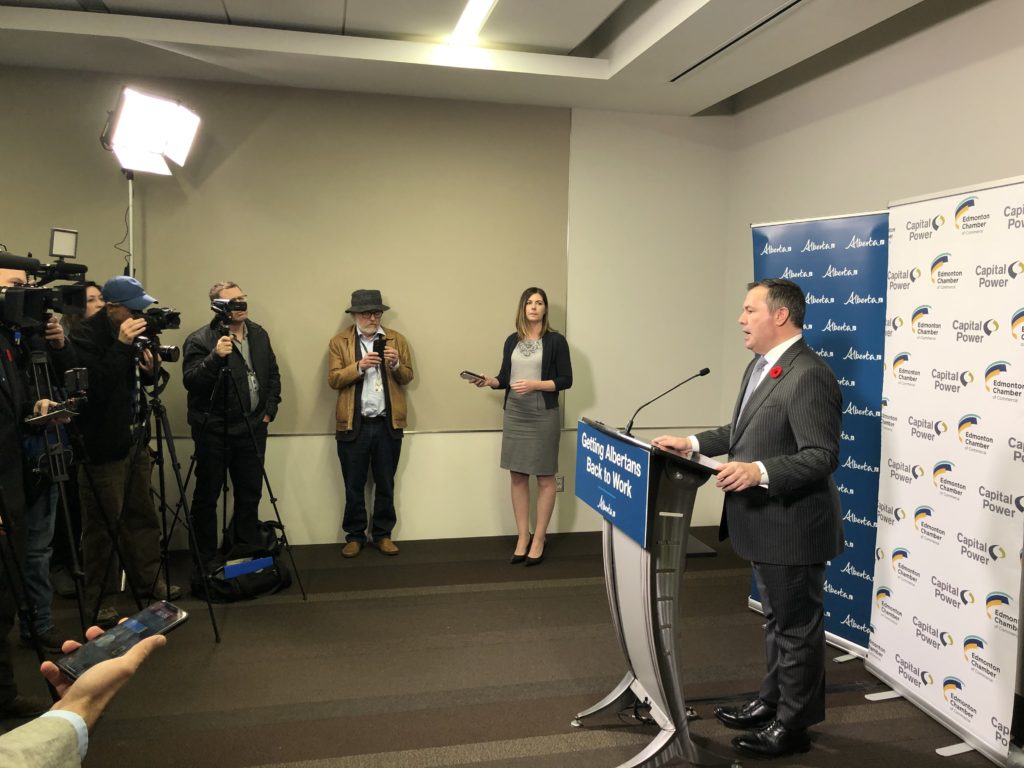
“Everything has changed” in terms of equalization, Kenney says
When asked about what has changed since Kenney was a federal cabinet minister in Stephen Harper’s government — when the equalization formula was last amended — Kenney said “everything” has.
Kenney said at that point in time, Alberta was booming, and Quebec and other provinces were in a period of economic decline. For him, the circumstances have completely changed.
“Now we have been through five years of economic stagnation and decline,” he said. “There have been no changes to equalization to reflect that.”
Additionally, he said that while he was a federal minister, Alberta was not asking for equalization program changes.
Premier “selling the biggest load of hogwash,” says NDP critic
Deron Bilous, Alberta’s Official Opposition member and critic for economic development, said in a press conference responding to Kenney’s state of the province address that no one should believe “for a second that a referendum in Alberta is going to change the equalization formula in Ottawa.”
“He [Kenney] is selling the biggest load of hogwash to Albertans,” Bilous said. “This equalization referendum is a smoke and mirrors show that is not going to have the real impact of getting the federal government of Canada and the provinces to sit and look at the equalization formula.”
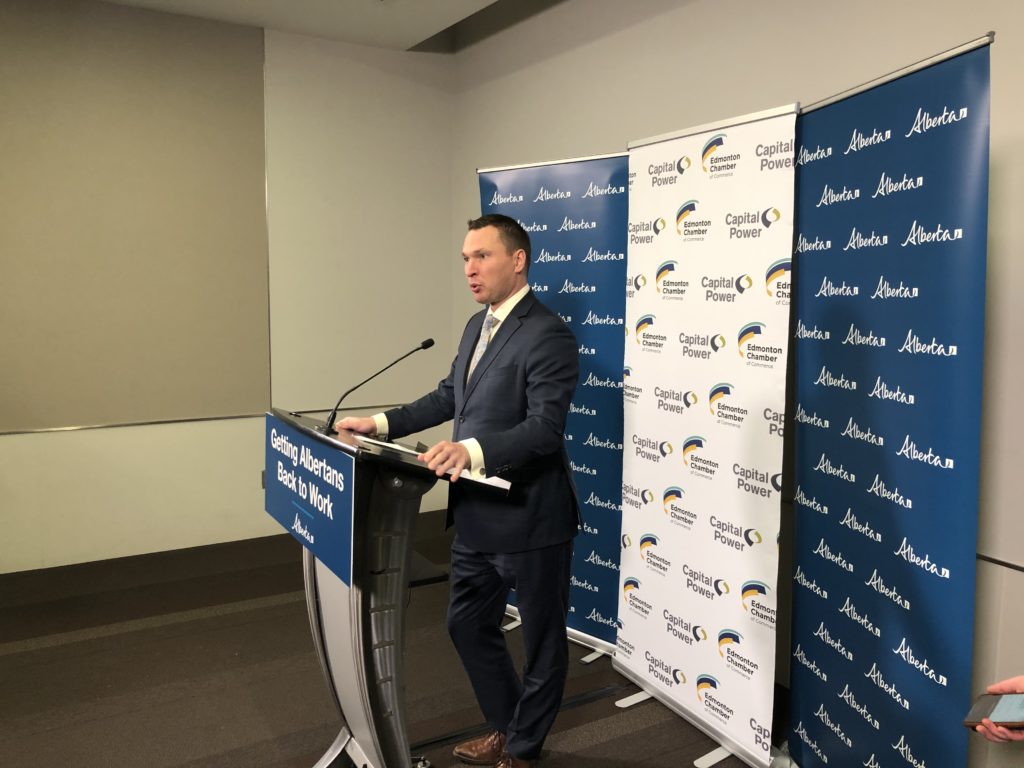
He added that while Kenney said Alberta did not ask for equalization program changes when the formula was last being amended, Albertans certainly did not ask for the formula to be amended in a way that adversely affects them.
“Do Albertans pay a ton [in equalization], yes we do,” he said. “Is it an unfair formula, yes it is. Do we need to look at how we can improve it, 100 per cent. But a referendum in Alberta is not going to help facilitate that program.”

